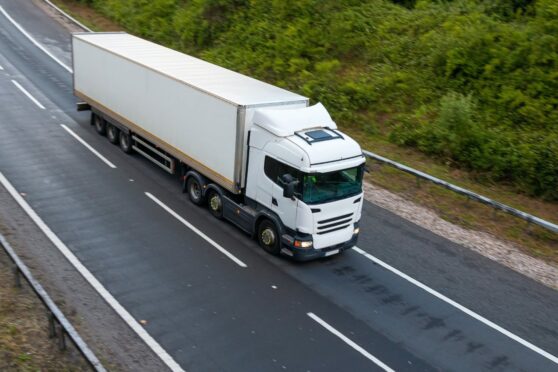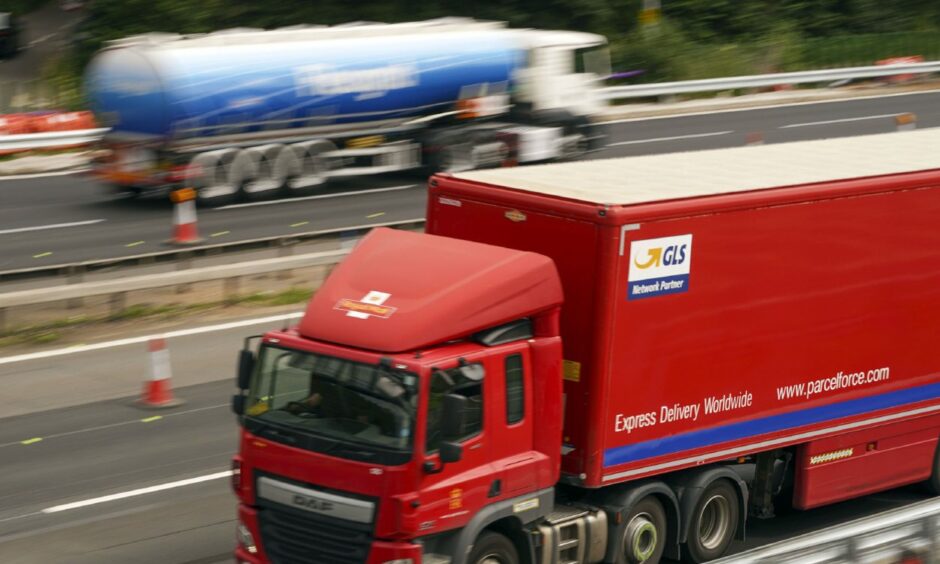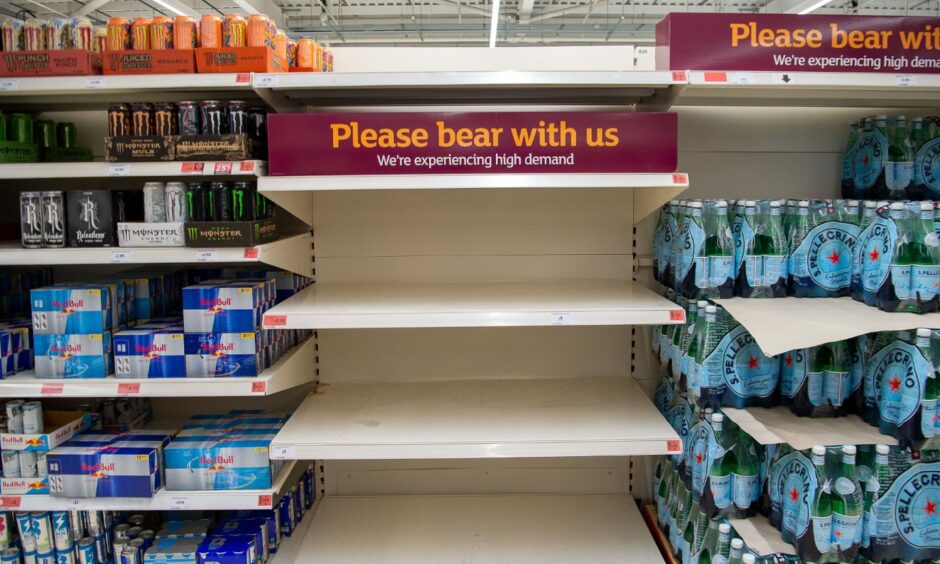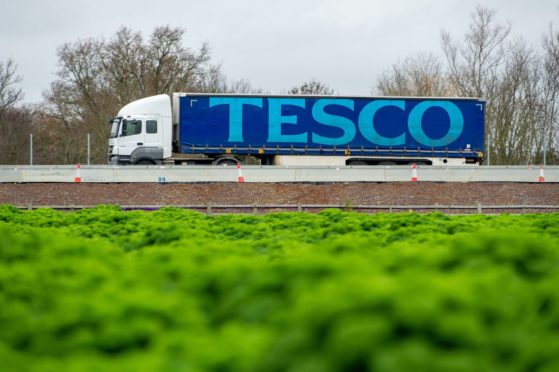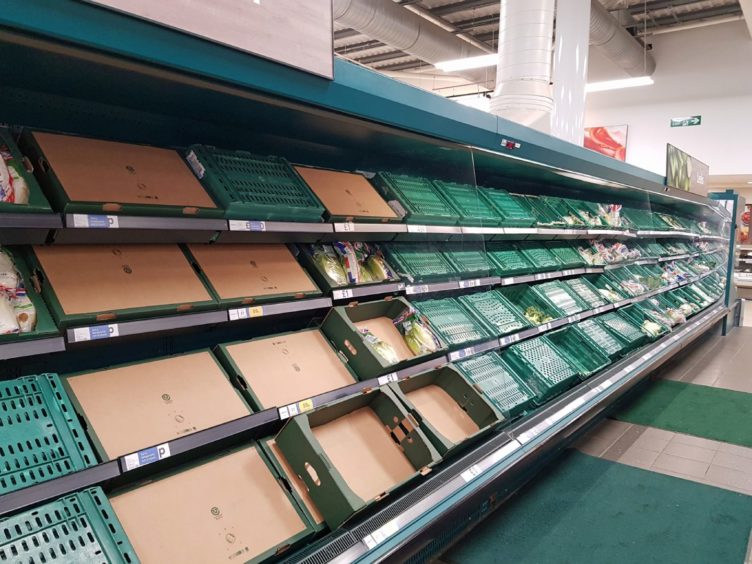New courses to allow people to train to become HGV drivers have been announced as part of a package of measures to tackle a shortage in the industry.
The announcement from the UK Government comes amidst concerns of a looming crisis caused by a lack of delivery drivers.
A handful of petrol stations were forced to close this week due to difficulties in having fuel delivered, prompting panic buying across the country.
Meanwhile, the retail industry warned Britain had “10 days to save Christmas“, with a lack of drivers putting a strain on supply chains – making it harder to good onto shelves.
Package of measures to tackle HGV driver shortages
The UK Government has now announced a package of measures in response to the concerns, including a relaxation of visa restrictions.
Up to 4,000 people will also be able to take advantage of training courses to become HGV drivers as part of the programme, the government announced.
Ministry of Defence examiners will also be used to increase testing capacity by “thousands” for the next 12 weeks.
The government also confirmed a relaxation of visa rules to allow a further 5,000 HGV drivers and 5,500 poultry workers to come to the UK from abroad until Christmas 2021.
They said this was intended to help the food and fuel industries with driver shortages during exceptional circumstances this year.
But the Scottish Government has said the rules should be relaxed further, including the introduction of a 24 month temporary workers visa.
In a letter to Home Secretary Priti Parel, the Scottish Government’s Cabinet Secretary for External Affairs Angus Robertson called on urgent action to tackle the problem.
As well as the introduction of a longer term temporary workers visa, Mr Robertson also called for a review of the Shortage Occupation List, which he said was “not fit for purpose”.
He also said there should be changes made to the immigration fee structure, describing it as a barrier and cost for employers and workers.
Scottish Government ask for urgent changes
Mr Robertson told Ms Patel that the current system was “not meeting the needs of Scotland.
He wrote: “The current immigration system is not meeting the needs of Scotland. At the moment it is not meeting the needs of sectors across the UK.
“This position is not sustainable and I would ask you to work with us to urgently develop and implement change.”
Amongst the changes introduced by the UK Government will be a £10m £10m investment to create new Skills Bootcamps to train up to 3,000 more people to become HGV drivers.
The free, short, intensive courses will train drivers to be road-ready and gain a Cat C or Cat C&E license.
An additional 1,000 people are expected to be trained through courses accessed locally and funded by the government’s adult education budget.
But the government said fuel tanker drivers need additional safety qualifications, which they will work with industry to ensure drivers can access as quickly as possible.
The DVLA are also set to send letters to nearly 1 million HGV drivers to thank them for their vital role supporting the economy, and to encourage those who have left the industry to return.
Call for HGV drivers to return to industry
The letter, which the government said will arrive on doormats over the coming days, sets out that the steps the road haulage sector is taking to improve the industry, including increased wages, flexible working and fixed hours.
Transport Secretary Grant Shapps said the package builds on the “important work” done to ease the “global crisis in the UK“.
“This Government continues to do everything we can to help the haulage and food industries contend with the HGV driver shortage.
“We are acting now but the industries must also play their part with working conditions continuing to improve and the deserved salary increases continuing to be maintained in order for companies to retain new drivers.
It is a top priority to ensure that there are enough workers across the country’s supply chains to make sure they remain strong and resilient.
– George Eustice
“After a very difficult 18 months, I know how important this Christmas is for all of us and that’s why we’re taking these steps at the earliest opportunity to ensure preparations remain on track.”
Environment Secretary George Eustice said: “It is a top priority to ensure that there are enough workers across the country’s supply chains to make sure they remain strong and resilient.
“We have listened to concerns from the sector and we are acting to alleviate what is a very tight labour market.”
The Food and Drink Federation’s Chief Executive, Ian Wright CBE, welcomed what he described as the “pragmatic decision” to add HGV drivers and poultry workers to the existing visa scheme.
“This is something UK food and drink manufacturers have asked for over the last few months – including in industry’s Grant Thornton report – to alleviate some of the pressure labour shortages have placed on the food supply chain.
“This is a start but we need the Government to continue to collaborate with industry and seek additional long term solutions,” he said.
The British Retail Industry has warned that an increase in drivers over the next 10 days will be necessary.
“Unless new drivers are found in the next 10 days, it is inevitable that we will see significant disruption in the run-up to Christmas,” Andrew Opie, director of food & sustainability at the British Retail Consortium said.
“HGV drivers are the glue which hold our supply chains together,” Opie said, adding: “Without them, we are unable to move goods from farms to warehouses to shops.”
